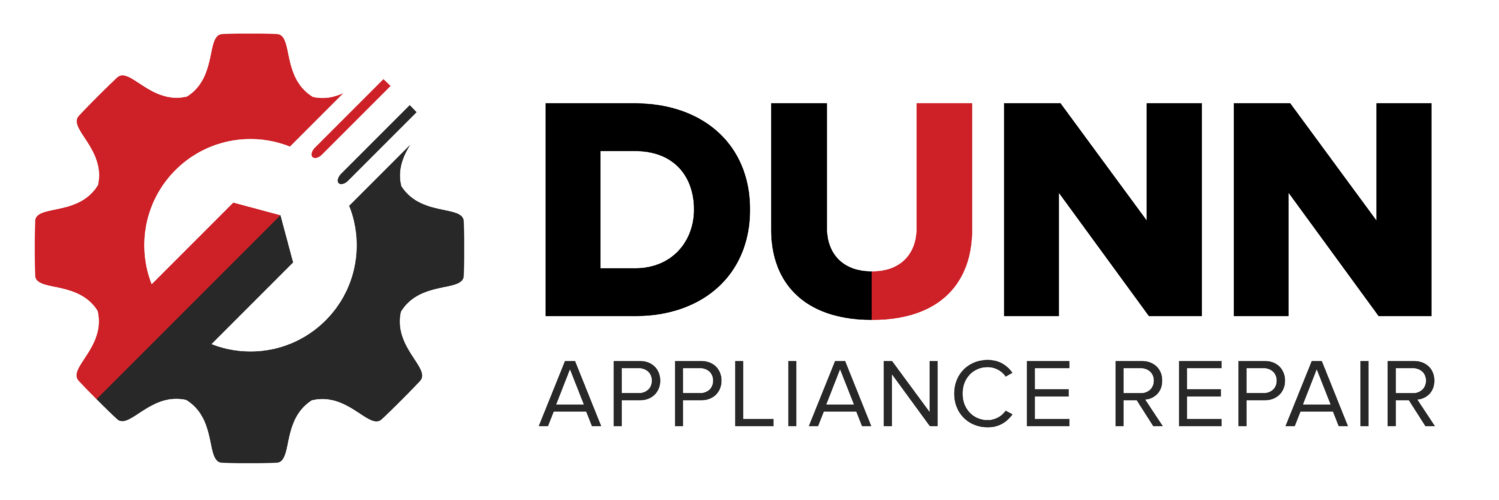Appliance Safety Tips
The appliances inside your house make life much less stressful, but when you use them unsafely, they could create evident health risks. It is important to care for your appliances and ensure that they do not turn into hazards by adhering to these appliance safety suggestions from Dunn Appliance Repair.
The tips below help prevent fires and injuries related to broken household appliances. However, hazards can still happen. If a home appliance has problems or starts to malfunction and becomes dangerous, reach out to a professional appliance repair.
GFCI Outlets in Wet Locations
Kitchens, laundry rooms, bathrooms, basements, garages and outdoor areas can be susceptible to possible dampness or water. Of course, electricity and moisture do not mix, so power cords and wires should always be plugged into GFCI outlets.
This type of outlet will prevent electrocution by tripping the circuit if any inconsistencies in electricity arise.
If you do not currently have GFCI outlets in wet areas around your house, it’s time to install them or call an electrician in CITY. Once that is done, for additional safety, you will want to heed the warnings of manufacturer appliance manuals that indicate they are not designed for outdoor use.
Electrical Cords, Electronics & Outlets Far Away From Wet Areas
Many appliances are designed for outdoor areas, such as gas and charcoal grills, for example. If you have any electrical appliances outdoors – including dishwashers, refrigerators, freezers and ice makers, power tools and more – be sure that all cords and outlets are 100% dry. Weatherproof electronics help, along with GFCI outlets with gaskets that are water-tight.
Extension Cords are Only a Momentary Answer
Extension cords pose many potential risks, this includes:
The likelihood of a loose connection that might result in sparks and start a fire.
The likelihood of power fluctuations that might break the appliance.
Increased vulnerability to moisture penetration that may lead to electrocution.
The potential for wires overheating and becoming a fire hazard when an low-quality extension cord is paired with a high-power appliance.
When choosing an extension cord for short-term use, ensure that it’s the correct gauge for the electrical equipment in question. The smaller the gauge, the bigger the cord size. For example, a simple extension cord for a garden tool will have a 16-gauge cord where a longer cord for a window air conditioner uses a 12-gauge wire.
The length is also crucial. The longer the extension cord is, the more power is lost on the way, something called voltage drop. Shorter cords are good for power tools and similar equipment.
Always Read the Operating Manual for Any Type of Appliance You Buy
It’s simple to guess that you know how to operate a new home appliance without consulting the operating manual, but consulting the manufacturer guidelines is necessary for several reasons:
You will want to find out if your home’s electrical wiring is enough to power the new appliance. You may have to install a new circuit to stop overloading any current ones.
You learn about complicated features you would not have otherwise known about.
You understand if the new appliance is intended for outdoor use or not.
You avoid the stress that can come from trying to use a home appliance without instructions!
Unplug Small Appliances When Not in Use
You are able to reduce unnecessary energy consumption by unplugging small appliances when not in use. This is because small appliances often include LED indicators, timers and other energy-consuming features while in standby mode.
Unplug televisions, computer monitors, routers, video game systems, cellphone chargers and more to stop unnecessary energy usage. But remember, it is alright to keep DVRs and similar devices plugged in to prevent missing out on their automatic background features.
For extra tips on using appliances safely, or to hire a professional appliance repair service, please contact Dunn Appliance Repair. Our repairmen can repair all name brand home appliances!
OTHER RESOURCES:
Appliance Repair Cost
DIY Appliance Repair Tips
Repair or Replace Appliances
Refrigerator Parts
Home Services Campaign Disclaimer: This site is a free service to assist homeowners in connecting with local service providers. All contractors/providers are independent and this site does not warrant or guarantee any work performed. It is the responsibility of the homeowner to verify that the hired contractor furnishes the necessary license and insurance required for the work being performed. All persons depicted in a photo or video are actors or models and not contractors listed on this site.
Copyright ©2025 Dunn Appliance Repair
